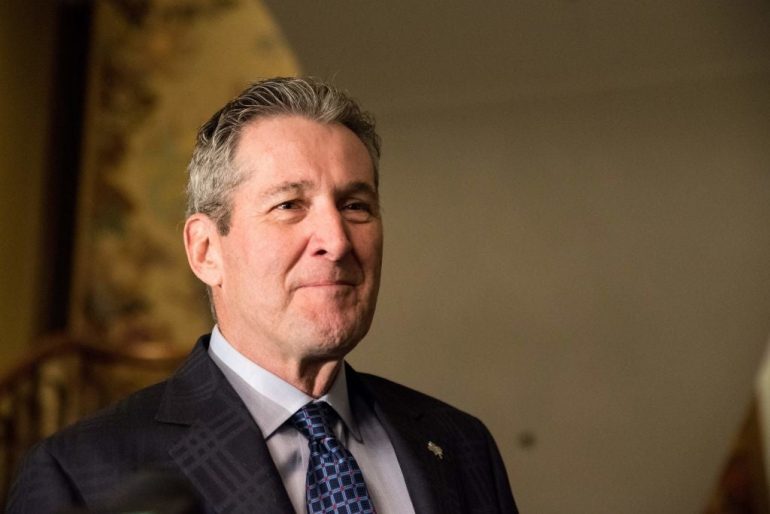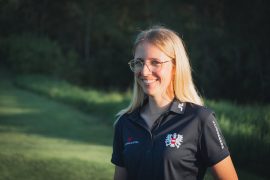A Canadian politician has delivered a blunt holiday message to residents: ‘‘If you don’t think Covid is real right now, you’re an idiot.”
Brian Pallister, the premier of Manitoba, gave the stark comment as part of a press conference updating citizens on Christmas celebration restrictions amid the ongoing pandemic.
In comments that went viral, Mr Pallister said: “I will do what I believe is right and right now we need to save lives. If you don’t think Covid’s real right now you’re an idiot.
“You need to understand that we are all in this together, you cannot fail to understand this. Stay apart.
“So I’m the guy that has to tell you to stay apart at Christmas and in the holiday season you celebrate, with your faith or without your faith, that you celebrate normally with friends and family, where you share memories and build memories, I’m that guy.”
With his voice breaking, Mr Pallister added he was the “guy stealing Christmas to keep you safe.”
“You need to do this now… because next year we’ll have lots to celebrate.”
“Stay safe, protect each other, love each other… but don’t get together this Christmas,” he added.
Manitoba has faced targeted restrictions since October to try and keep Covid-19 rates under control after fears that infection numbers were starting to climb.
Currently residents are expected to wear masks in public and there are restrictions on meeting people from other households.
A second wave of the virus is currently sweeping the country. Canada has reported a total of 389,778 cases of Covid-19 and 12,325 deaths.
Quebec, the second most populous of the 10 provinces, on Thursday reversed course and said different households would not be able to mix in homes for Christmas gatherings in hotspots like Montreal.
It comes as Canadian health authorities could approve Pfizer’s coronavirus vaccine within the next week, allowing distribution to start in early 2021, medical officials indicated on Thursday.
Prime Minister Justin Trudeau told members of his ruling Liberal Party on Tuesday that priority would be given to first responders, workers in long-term care homes, the elderly and members of remote aboriginal communities.

Devoted web advocate. Bacon scholar. Internet lover. Passionate twitteraholic. Unable to type with boxing gloves on. Lifelong beer fanatic.





